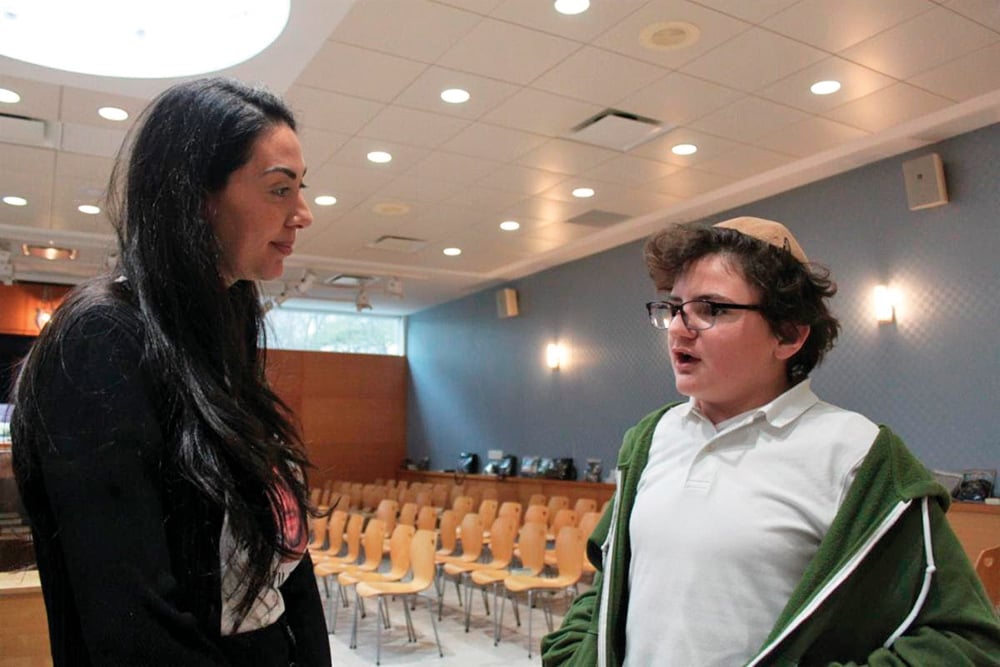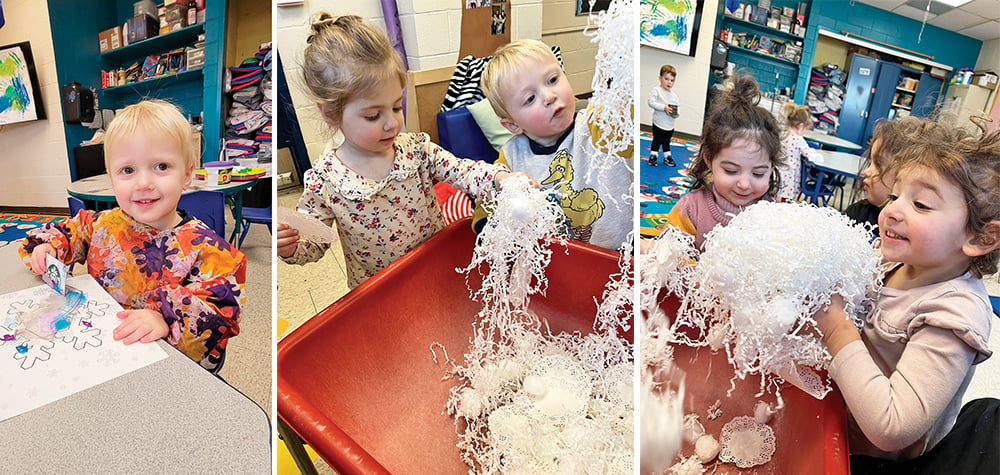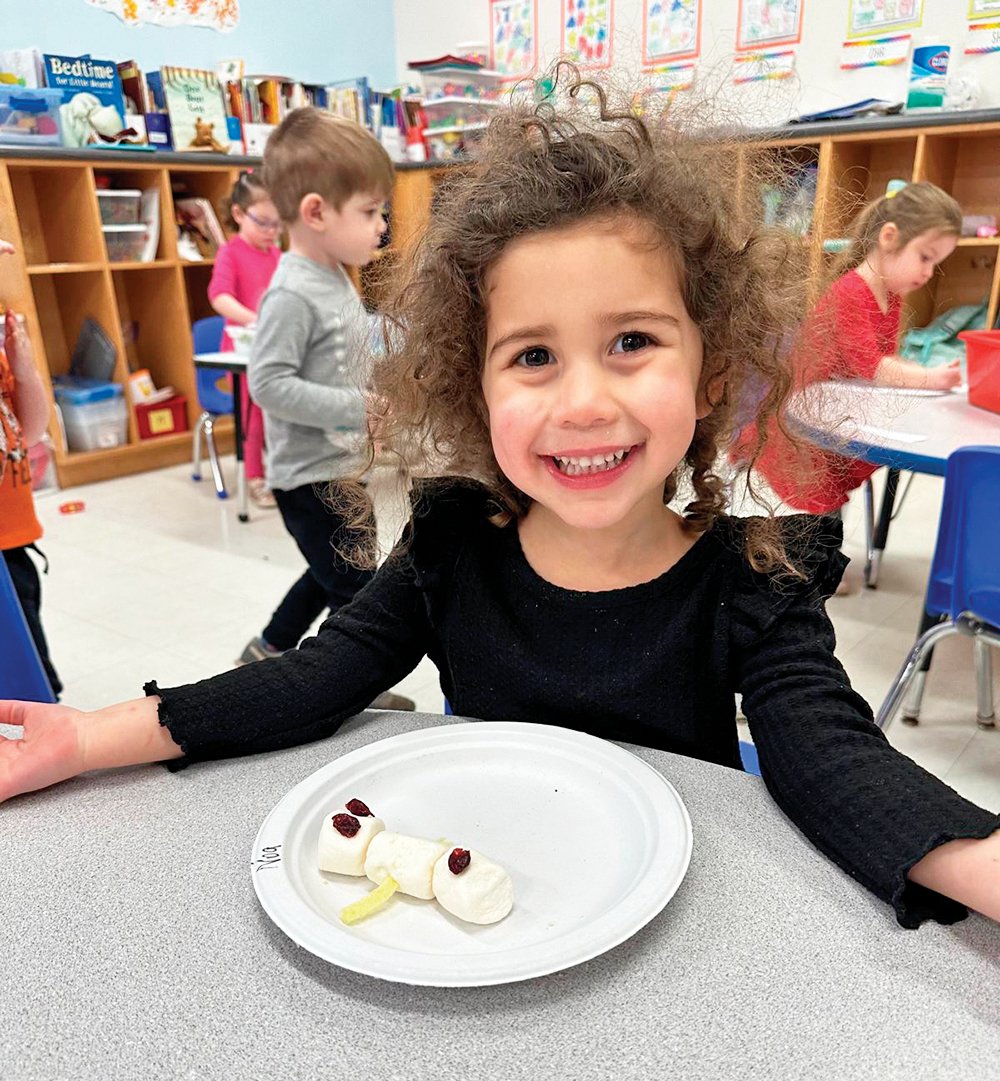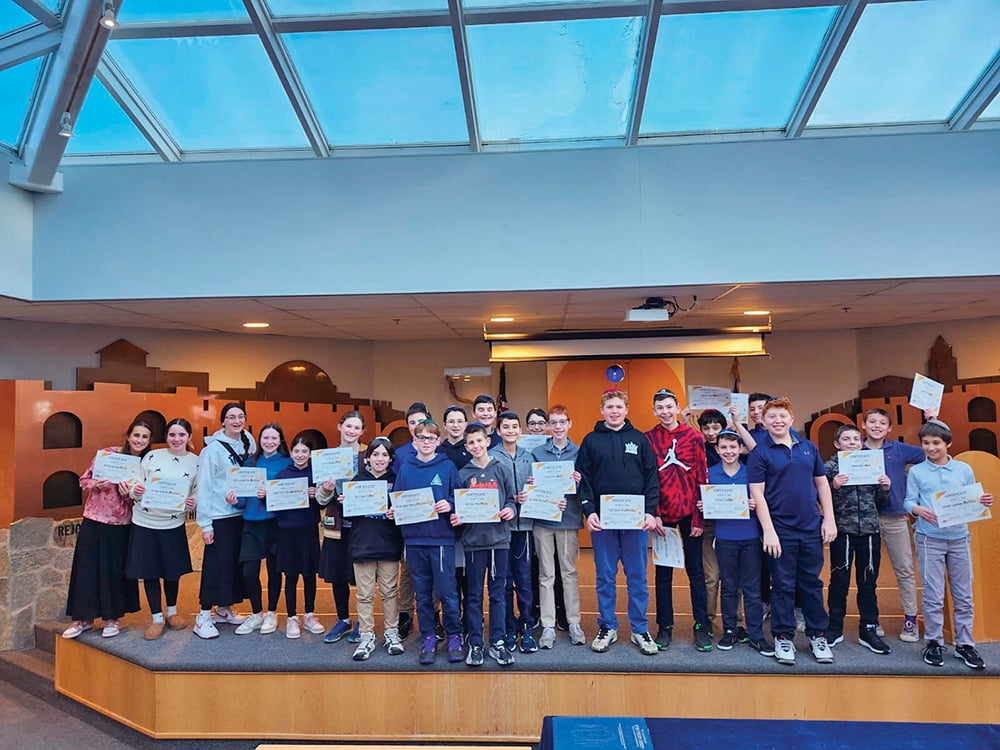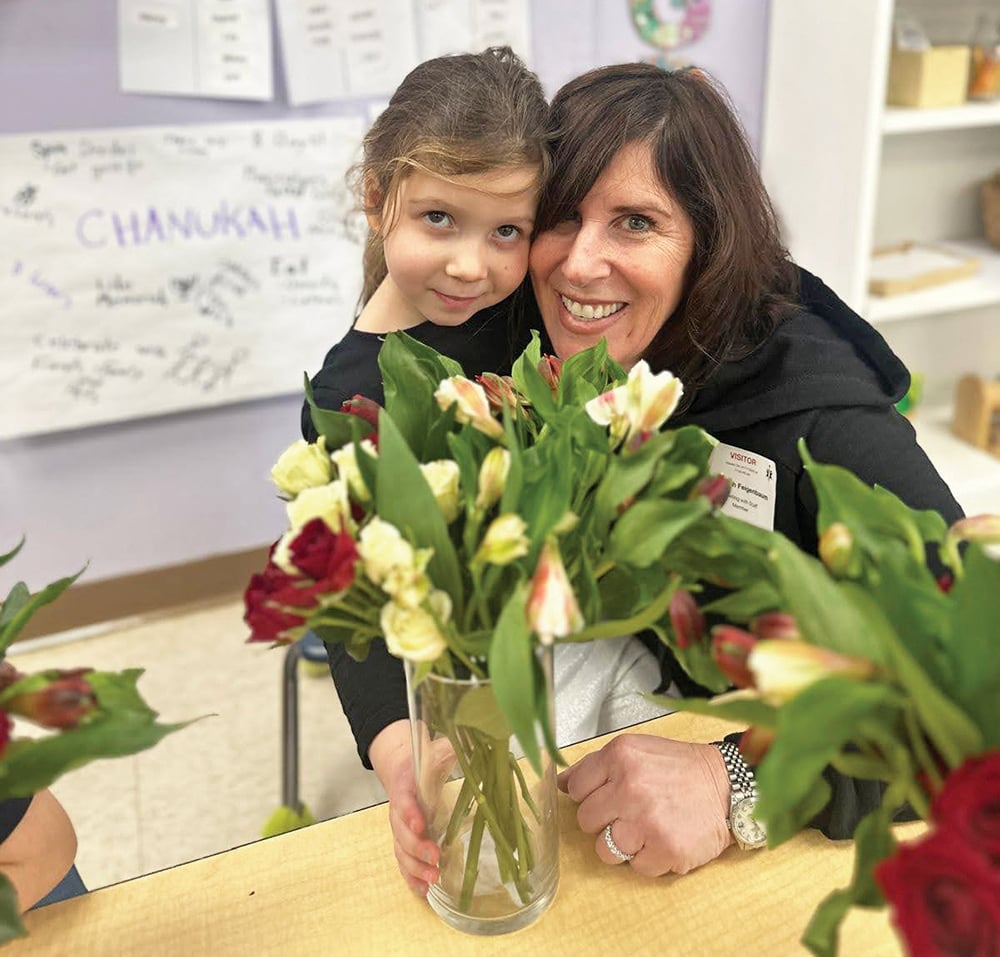A very wise woman, also a former neighbor and colleague, used to wish me a “gitten erev Shabbos” (a good pre-Shabbat) every Friday afternoon. If I would visit her on a Friday afternoon, I would see her table immaculately set, smell delicious food cooking, and stand in awe of the calm and grace that she embodied as she extended this wish to me. Preparing for Shabbos can be a harried experience, with all that needs to be done. While we more commonly wish each other a “good Shabbos,” I have learned from her to value the blessing of a good erev Shabbos, regarding the preparation time as a sacred preamble to Shabbos itself. I have thought back to those Friday afternoon conversations many times over the years as they have shaped my understanding of the importance of being more fully present in a process for its own sake, and not only for the end result.
Years later, I was reminded of this concept when reading a preschool handbook for my children. I have read many school handbooks over the years, but there was a comment in this one that I had never seen in this context before. It urged parents to be mindful of their ride to school and to keep it as peaceful and happy as possible, as that would have a carryover into the children’s day. It stressed that the relatively short time spent riding to school could be as impressionable on the child as the school day itself. As my then preschool-aged children have since grown and moved on to higher grades, I have kept this lesson to heart. The educational value of the morning routines before school is not to be underestimated, and its influence reaches well into the school day and beyond.
As a parent-school partnership is key to educational success, both parents and school leaders have important roles to play in acknowledging the erev-school day. For parents and caregivers, let us think about how to eliminate stressors in morning routines, bring more joy, and appreciate the carryover this will have into learning throughout the day. For school leaders, let us consider that every child comes from a unique home and set of circumstances. Whether they ate, made the bus, remembered to complete their homework, or wound up in the middle of a heated conversation, those experiences shape feelings and attitudes that arrive with the children at school. Being mindful of those different carryovers may inspire greater understanding, encouragement and flexibility from school leadership. They may also inspire greater feelings of being understood for children.
While there may not be a one-size-fits-all for best morning routine practices, there is a consistent benefit to being mindful of the atmosphere in the home as these routines are happening. Can we expect the unexpected and be prepared to respond calmly when it comes to be? What happens, for example, when one shoe is missing and the bus is nearing the corner? What happens when we are ready to head out and I cannot find my keys? What do I tell my child when I am nearly finishing zipping lunchboxes and they mention they forgot to do some of their homework? What adult conversations that I may need to have, do I allow my children to overhear? The school day mornings can be busy and even stressful at times. How we listen and respond, whether we choose to be solution-oriented, and how carefully we choose our words and expressions will likely set the tone for their day. Often, it can shape the children’s self-image and become the voice they will hear in their minds well into the future.
Although school mornings seem to be all about getting ready for school and success being deemed by making it out the door in time (or not), there is more to consider. Did we work collaboratively to get things done? Did we come up with sensible solutions for problems and manage to find some humor in them? Even if we are not natural morning people, did we turn on music or take some deep breaths to help center ourselves and set a positive example? Did we troubleshoot with Plan Bs for various last-minute crises to restore our children’s sense of confidence and integrity going into the school day? Home is their charging station. The morning home experiences accompany children to school and manifest in their learning. Bringing our attention to this reality can help inspire the roles we play in getting their day of learning off on the right foot.
At school, there are often collective goals that school leaders have in order to invite students into the school routines for the day. Being mindful that there are varied contexts from which the children came to school that morning is so important in establishing genuine and meaningful connections. I remember once, following mass power outages in the aftermath of a storm, an article circulated about the importance of teachers recognizing that some students may have come from cold homes, without hot water or food. It called for sensitivity to the impact those factors may have on their learning. While that may be a dramatic example, there may in fact be household or commuting time situations that children experience as stormlike and color their moods about themselves and their interactions with others. It can only be beneficial for school leaders to maintain ongoing awareness that every student comes from a unique place and may need some centering time and space upon arrival at school to refocus.
To have a successful school day and to have a good Shabbos, as distinct experiences as they are, have a lot to do with the preparatory processes leading up to them. A positive, calm, cheerful, encouraging morning can set an ideal frequency for a child to embark on their day of learning at school. So too, a good Shabbos can be so enriched by an erev Shabbos consisting of a peaceful, loving and supportive collaborative effort to prepare for it. These preparatory processes are important not only for the sake of the desired end results they are meant to facilitate, but also for the inherent value of a truly good morning and especially a gitten erev Shabbos.
Aviva Edelstein is an educational consultant living in Teaneck. She has experience in both formal and informal education as well as home-school curriculum design and instruction.



